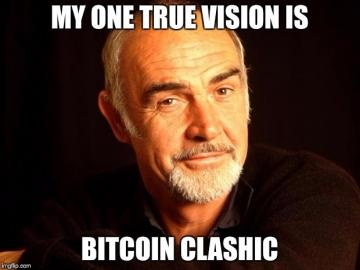For those that are new to cryptocurrency, navigating all of the complex terms and jargon can seem overwhelming at first. The multitude of words both real and made up can almost seem like a completely different language, if not at least a different dialect.
Due to the international nature of cryptocurrency, a sort of pidgin dialect has also sprouted up around it. This dialect is partly responsible for many of the popular memes that we see on the internet.
In this article, we’re going to go over some of the important words of the cryptocurrency world and also look into this unique new dialect that is developing inside various communities.
Technical and Trader Terms
Many of these words come from stock traders and others that have significant experience in traditional financial markets. But if you are new to both cryptocurrency and the stock market, these terms can be confusing, so let’s go over a couple of them.
ATH
This means all-time high. As the term suggests, it means the highest price that any particular asset has ever hit. For example, at present time, bitcoin's all-time high is $19,800 or so. Traders will often describe an asset by the difference between its current price and its all-time high. For instance, asset X is down from it's ATH by 10%.
Bull and bear markets
These are used to describe market trends. For instance, a bull market is one that is seeing a large, general upward movement, and a bear market is one that is seeing the reverse. If someone describes their opinion as bullish, it means they believe that the market or a specific asset will go up. For example, some could say they are very bullish on Litecoin or Bitcoin Cash.
Crash
A crash refers to a very large, short-term drop in value among a large number of different assets. As many alternative cryptocurrencies are traded against bitcoin, when bitcoin drops, many other alternative coins will drop as well. This can be called a crash. We saw such a crash at the end of December last year, but the market has since recovered for the most part. If only a single asset drops, traders would say "X crashed hard yesterday".
Speculation
Speculation is the idea of prices going up only as a result of lots of people buying them. For example, Ripple has seen massive upswings not because it is being used by banks en masse, but because of speculation. Also, a person who buys and sells cryptocurrency to make profits based on the difference in price can be called a speculator.
This is different to an investor, which is someone who buys and intends to hold for long-term, and believes in the specific business goals of the asset.
Community Buzzwords and Memes
Although there are enough Memes and jokes to fill a stadium, we’re going to focus on a few of the more creative ones that you will come across on Reddit, on a Telegram chat, or in a Slack group.
Although some have argued that memes are destructive, they are still essential to understand what’s going on in a common discussion. Because there is already significant information about the extremely popular and well-known memes such as "moon" and "lambo", we’re going to skip over those this time.
Nissan Micra
While some traders want to know when a cryptocurrency will let them earn enough money to buy a shiny new Lamborghini, others are just wondering when they can afford a compact economy car like the Nissan Micra (also known as the Nissan March). The Nissan Micra meme is a satirical take on the Lamborghini meme.

Satoshi’s True Vision
 Satoshi's "True Vision"
Satoshi's "True Vision"If there is one thing cryptocurrency enthusiasts like to do, it's arguing with each other about what Satoshi Nakamoto's “true vision" was. For example, the term true vision was used during the bitcoin cash feud that occurred last summer.
Many argued that the cost of transacting in bitcoin became too cumbersome, and so bitcoin no longer represented Satoshi‘s “true vision“ of electronic peer to peer cash. Later, a satirical currency called Bitcoin Clashic appeared and used the “true vision“ meme a number of times.
Classic
Speaking of "classic", the term is often used in jest to describe various hard forks of popular currencies. This comes from the asset known as Ethereum Classic. Ironically, Ethereum Classic is not the result of a hard fork in and of itself.
That honor goes to what we know of today as Ethereum. Regardless, the term classic has been used in other currencies as well such as Zclassic and in the previously mentioned Bitcoin Clashic. Many Redditors will joke and say that if you don’t like XYZ asset, make a fork and call it XYZ classic.
Shill
A shill is someone who unapologetically promotes an altcoin on the internet. One person who is often accused of being a shill is Barry Silbert. Some in the community have even called him “Shillbert“. He famously bought massive amounts of Ethereum Classic for less than a dollar each, and Tweeted about it until the price hit it's current $35-$40 dollars.
Pumper
While seemingly similar to a shill, a pumper is an accusation to describe someone who promotes an altcoin to get its price up, so they can sell their own holdings for a big profit. Typically "pumper" is an insult.
Maximalist
Maximalist is usually used to describe supporters of bitcoin but sometimes other cryptocurrencies, and is someone who believes that there will only be one winner in the long term. Additionally, all other cryptocurrencies are "junk" and one should only invest in a particular asset that the maximalist believes in.
The Forming of a New Cross-Border Language
As cryptocurrency is not restricted to only one country, language, or culture, we are seeing a new collision of cross-cultural communication that probably would not have happened if not for cryptocurrency. The end result is a new dialect which we are calling “Crypto Pidgin“. This refers to the language or dialect used typically in cryptocurrency centric chat rooms or forums that does not follow English grammar rules. Crypto Pidgin has led to the creation of the construct that typically follows this structure:
"When" + X (noun/verb)

For example, when lambo, when moon, when Nissan Micra, when exchanges, when ICO, and so on
While Crypto Pidgin is not limited to just the when + X structure, this is it’s almost universally recurring theme.
What’s also interesting about this structure is that it doesn’t appear much in other parts of the internet. In this sense, Crypto Pidgin should not be dismissed as just bad English.
Instead, it is indeed a new simplified international dialect that allows for people who do not speak English very well to participate in cryptocurrency related discussions and ask simple questions.
The English-speaking community at large has also accepted Crypto Pidgin into the fabric of many of its memes. For instance, "when moon" and "when Lambo" is not only Crypto Pidgin, but they are also memes in and of themselves. Other memes have also appeared using the when + X structure, such as "when homeless" and “when sadness ends?”
Pidgin dialects are known to form when two or more mutually disctinctive language groups come together, and cryptocurrency is no different.



